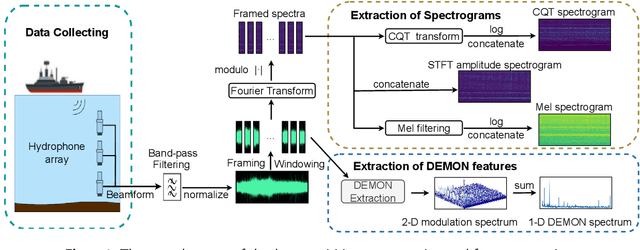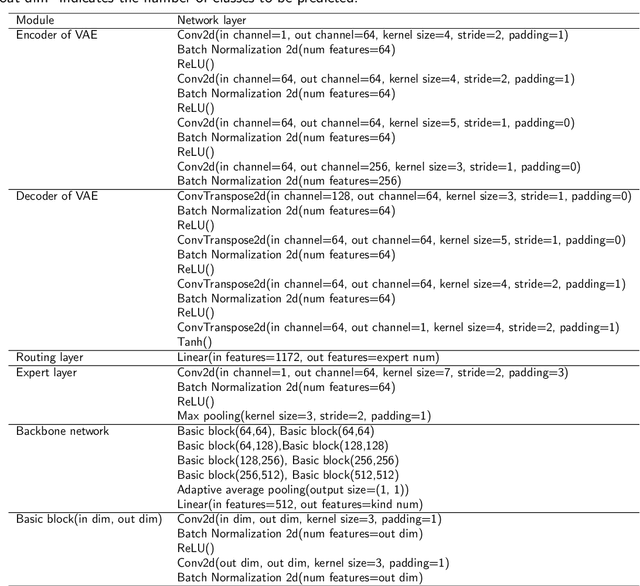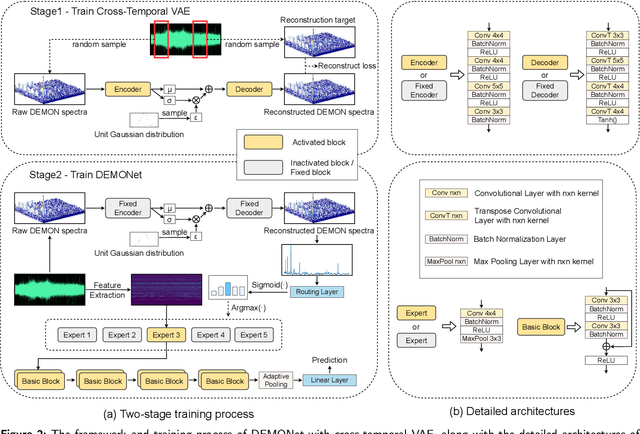DEMONet: Underwater Acoustic Target Recognition based on Multi-Expert Network and Cross-Temporal Variational Autoencoder
Paper and Code
Nov 05, 2024



Building a robust underwater acoustic recognition system in real-world scenarios is challenging due to the complex underwater environment and the dynamic motion states of targets. A promising optimization approach is to leverage the intrinsic physical characteristics of targets, which remain invariable regardless of environmental conditions, to provide robust insights. However, our study reveals that while physical characteristics exhibit robust properties, they may lack class-specific discriminative patterns. Consequently, directly incorporating physical characteristics into model training can potentially introduce unintended inductive biases, leading to performance degradation. To utilize the benefits of physical characteristics while mitigating possible detrimental effects, we propose DEMONet in this study, which utilizes the detection of envelope modulation on noise (DEMON) to provide robust insights into the shaft frequency or blade counts of targets. DEMONet is a multi-expert network that allocates various underwater signals to their best-matched expert layer based on DEMON spectra for fine-grained signal processing. Thereinto, DEMON spectra are solely responsible for providing implicit physical characteristics without establishing a mapping relationship with the target category. Furthermore, to mitigate noise and spurious modulation spectra in DEMON features, we introduce a cross-temporal alignment strategy and employ a variational autoencoder (VAE) to reconstruct noise-resistant DEMON spectra to replace the raw DEMON features. The effectiveness of the proposed DEMONet with cross-temporal VAE was primarily evaluated on the DeepShip dataset and our proprietary datasets. Experimental results demonstrated that our approach could achieve state-of-the-art performance on both datasets.
 Add to Chrome
Add to Chrome Add to Firefox
Add to Firefox Add to Edge
Add to Edge